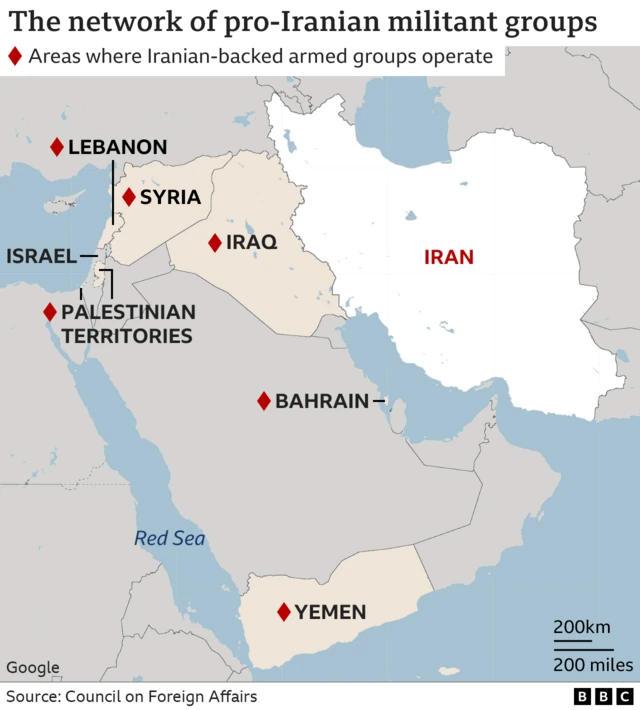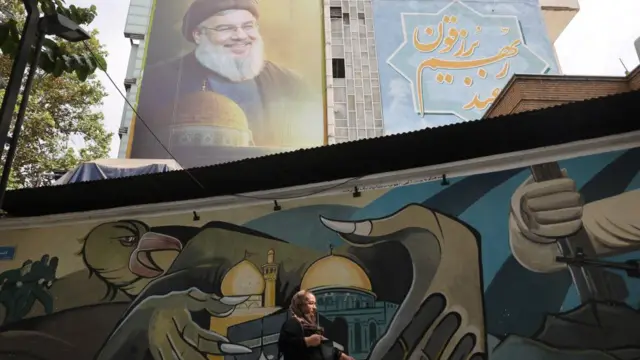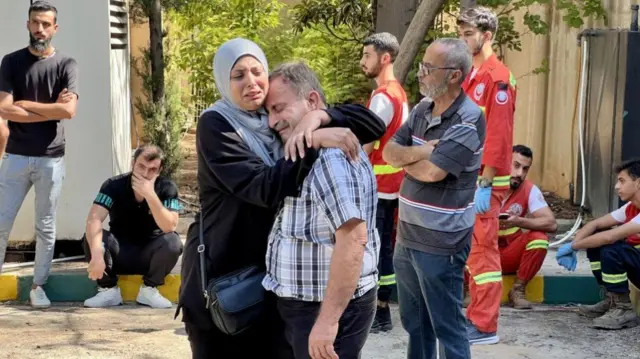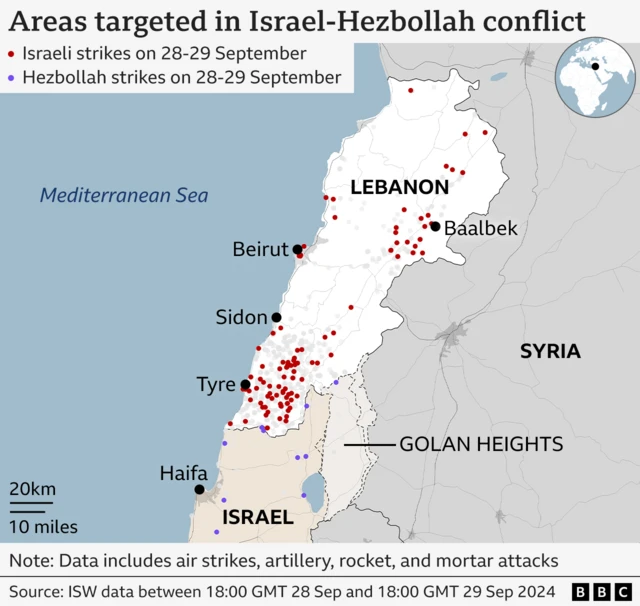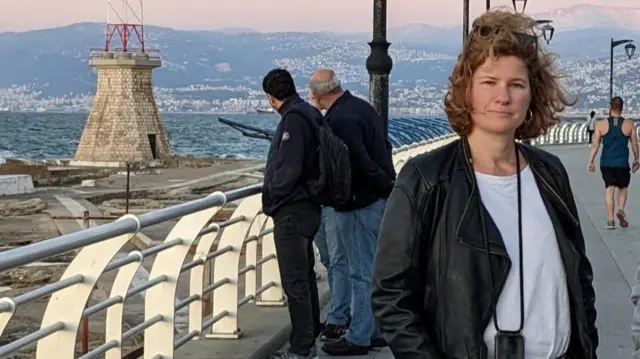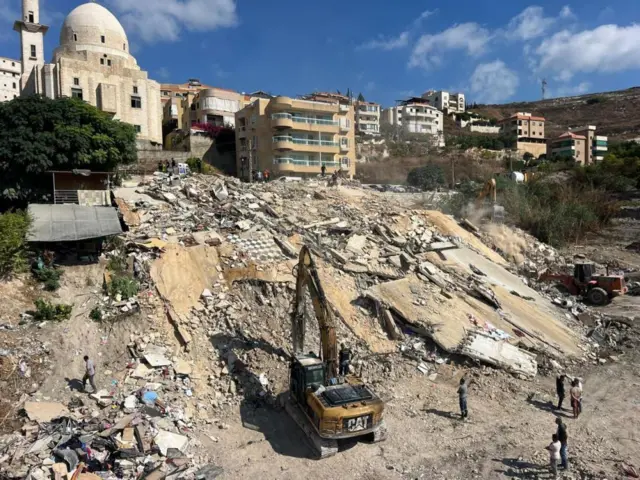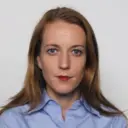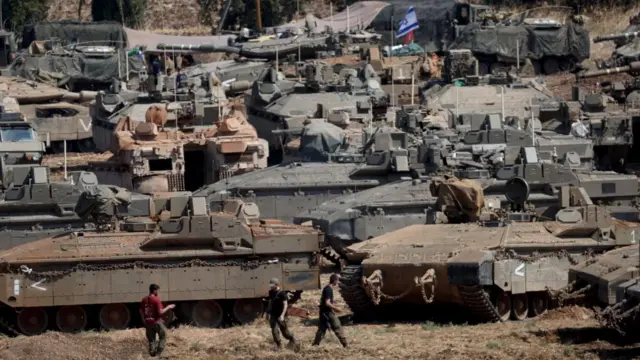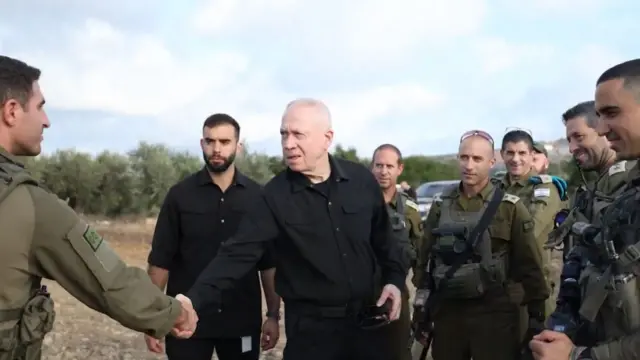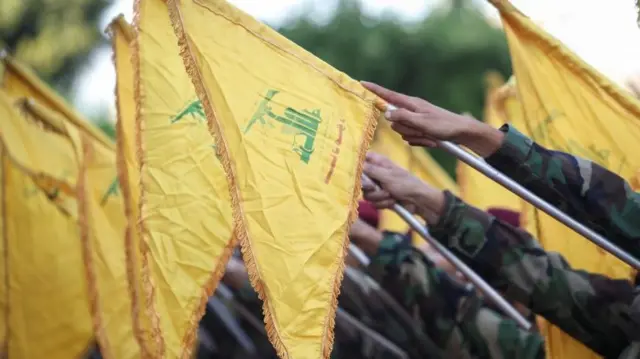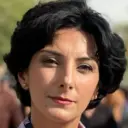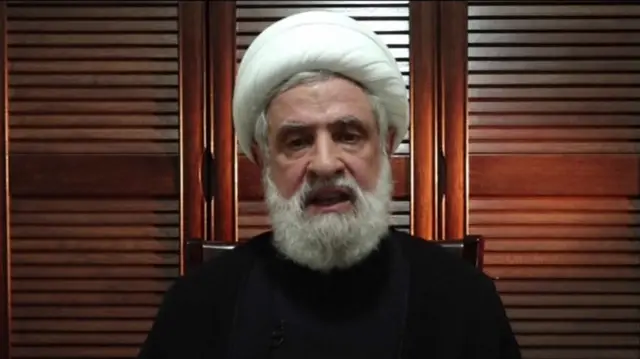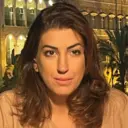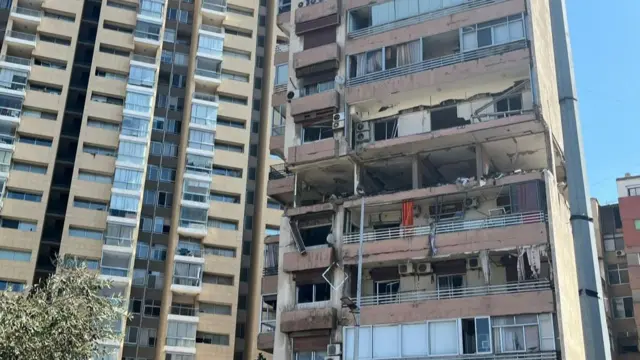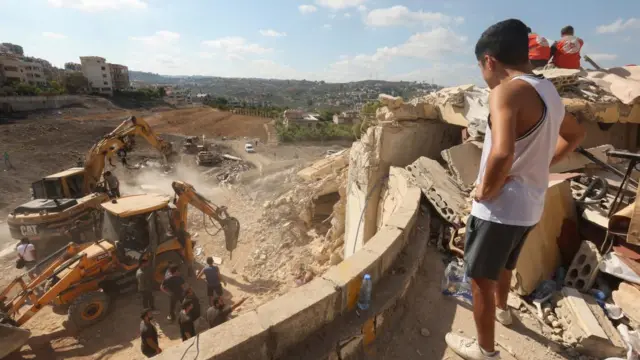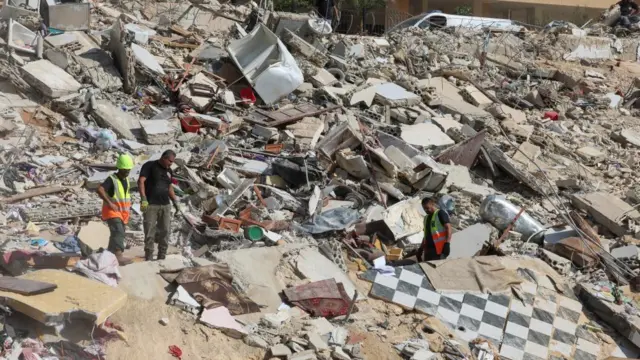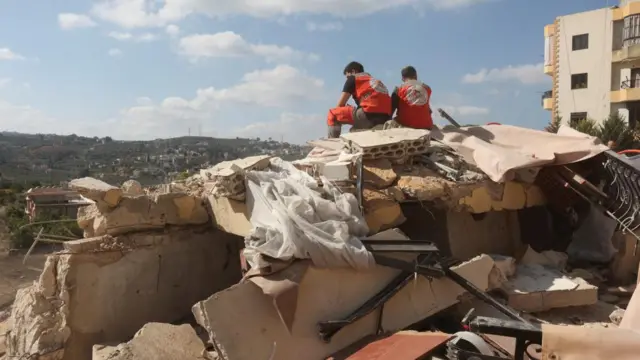Lebanese army says soldier killed after Israeli drone strikepublished at 14:32 BST 30 September 2024
A Lebanese soldier was killed after an Israeli drone strike on a motorbike in southern Lebanon, according to the Lebanese army.
The army said the drone "targeted" a motorbike as it was passing through an army checkpoint in the Wazzani area, near the Israeli border.
A source close to the army told the AFP news agency the strike targeted two Syrians on the motorbike, and the soldier was hit by shrapnel and died.
The Israeli military has not yet commented.


